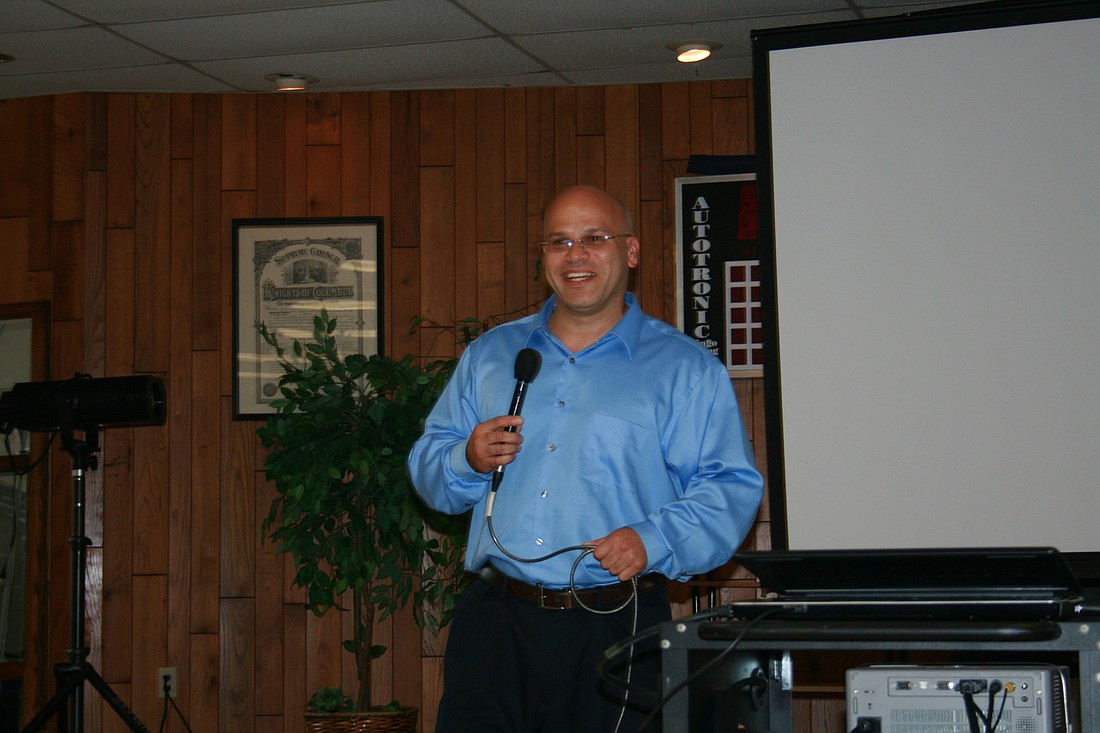- April 19, 2024
-
-
Loading

Loading

Inmates on death row know when someone is about to die. They hear the marching of boots down their corridor, and everyone sticks their mirrors out of their cells to see who the guards are coming for. Seth Penalver remembers when they came for an inmate he’d befriended by talking to each other through their cells or playing basketball during their recreation times.
Penalver spent 18 years in prison for murder. He was sentenced to death. Just three months ago, he was exonerated. Evidence emerged in his case proving he didn’t commit the crime he was imprisoned for.
He was released from death row at 3 a.m. one night in December. Even though it was so late, Penalver had two things he wanted to do, and he didn’t let the time stop him. First, he found a church — he didn’t care which — and prayed on its stairs. Then, he went to the beach.
Penalver is not alone. For every three inmates on death row in Florida, one of them is exonerated.
Penalver and another exonerated inmate, Herman Lindsey, spoke Saturday at the third-annual Community WHAT Workshop held by the Santa Maria del Mar Social Justice Group. This year’s workshop focused on the death penalty, a punishment applied more frequently in Florida than in any other state in 2012, according to the Death Penalty Information Center.
A view of the death penalty
In Florida, it is not required that a jury panel make a unanimous decision in recommending the death penalty, said Garry Wood, a defense attorney whose office is in Putnam County, but who works throughout the area on death penalty cases. Wood is opposed to the death penalty for this reason and also because he says it is unevenly applied. There are aggravating circumstances that warrant the death penalty in certain cases, but this punishment is not always sought. It all depends on who prosecutes the case, Wood said.
Wood's concerns are shared by Jackie Morelewicz, one of the workshop's organizers. She and the rest of the group became involved in social issues after taking a course called Just Faith. The course inspired them. A previous workshop, which was about homelessness in Flagler County, was instrumental in starting Family Promise, an organization that helps homeless families get back on their feet.
Morelewicz and the rest of the justice group were already involved in fighting against the death penalty before hosting the workshop.
“You realize how some people are really stuck within the system,” she said.
That’s why she — and others — stand outside the courthouse whenever an inmate is killed, holding signs against the death penalty.
'I am guilty of murder'
During the workshop, attended by more than 50 people, the Rev. Phil Egitto explained why he brings busloads of people to protest at prisons whenever the death penalty is enacted. The last time this happened was Dec. 11. There have been 74 total executions in Florida since they became legal in 1976.
When the execution begins, Egitto and others ring a bell that’s loud enough to be heard inside the prison walls.
“We are responsible for what is happening,” Egitto said. “As long as we are residents of the state of Florida, people are being killed in our name.”
That, Egitto said, equates to being complicit to murder.
“I am guilty of murder,” he said, “because the state is killing in my name.”
The state is also using Floridians’ money to do so, said Natishia Y. Stevens, regional organizer for the American Civil Liberties Union. The death penalty costs taxpayers $51 million per year, she said.
A 2008 study by the Urban Institute found that trials in which a death penalty sentence is sought cost three times more in taxpayer money than those that do not.
'Trial of riddles'
When Lindsey spoke at the workshop, he asked attendees to use their voices to speak out against the death penalty.
“My story is not being told for sympathy,” he said. “You have to look at me as an example of what is actually going on.”
Lindsey’s case went before the Florida Supreme Court before he was executed. At his appeal, the judge called his time in the circuit courts the “trial of riddles.” Lindsey was unanimously exonerated for lack of evidence. Penalver was similarly exonerated when new evidence in his case emerged.
What Americans think
Although the anti-death penalty conversation was fierce on Saturday in Flagler Beach, 63% of Americans support the death penalty in cases of murder, according to a survey by Gallup. That number has held steady over the last decade.
Of those polled, 40% said the death penalty is not applied often enough, while 27% said it was applied frequently enough, and 25% said it was imposed too frequently.
Arguments for the death penalty vary, but one is that the possibility of a death sentence is more of a deterrent to crime than the possibility of a sentence in life in prison. If death is not an option if convicted, criminals or would-be criminals might consider the stakes lowered, proponents say.
'Beautiful dreams'
But on Saturday, the tone was anti-death penalty. When Penalver asked if any who attended the workshop supported capital punishment, no hands were raised. As he and Lindsey spoke, their words were punctuated by those in the audience who made their disdain for the death penalty known.
“I used to dream myself to sleep at night,” Penalver said. “I used to think, ‘I know I’m innocent, how did this happen?’ but I couldn’t come up with an answer.
“Many times I’d have dreams, beautiful dreams, but then I’d roll over and hit that wall in my cell and know I wasn’t, and that I probably wouldn’t ever be.”